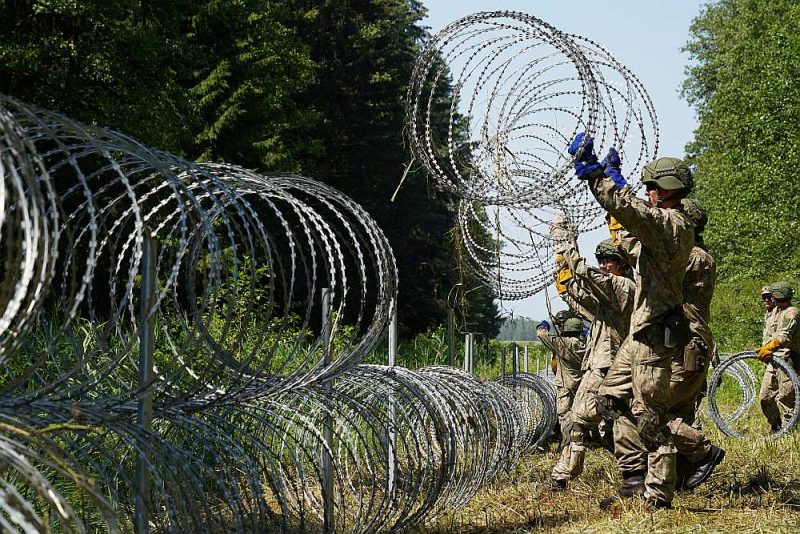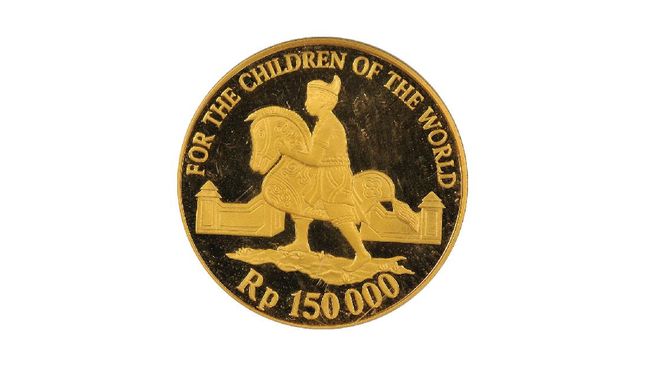
Soldiers of the Lithuanian Army are installing a barbed wire fence on the border with Belarus near Druskininkai.
Photo: Jānis Laizāns / REUTERS / SCANPIX / LETA
Valdis Bērziņš, “Latvijas Avīze”, JSC “Latvijas Mediji”
Due to the large influx of migrants, Lithuania is sending additional soldiers to guard the border with Belarus, the Minister of the Interior Agne Bilotaite said yesterday.
–
The news
“Below for 300 euros “on hand” it is impossible to survive. ” Minister for Small Pensions
9 hours
–
The news
Significantly cooler weather is expected next week. How sharply will the air temperature drop?
10 hours
–
Cocktail
Prince Harry and Megan Mark prepare for the baptism of daughter Lilibet: make special demands on the angry British royal family
8 hours
–
“Currently, the maximum number of employees of the Lithuanian Border Guard Service is concentrated on our border, other forces of the internal affairs system are also involved, and yesterday we specifically discussed the additional armed forces. [izmantošanu], ”Said Bilotaite at a press conference after a meeting of the National Defense Council convened by President Gitan Nauseda to discuss the influx of migrants on the border with Belarus.
At the end of last week, it was reported that Lithuania plans to send an additional 260 soldiers to guard the border with Belarus. The National Defense Council has also asked the European Union Border Guard Agency Frontex to send 60 border guards to the Lithuanian border with Belarus, or twice as many as was previously requested. Frontex management has stated that it is urgently setting up a group of border guards to deploy in Lithuania.
It has already been reported that Lithuanian officials suspect that the Belarussian regime is deliberately facilitating the flow of migrants across the border. Belarus’s authoritarian leader Alexander Lukashenko, in response to new EU sanctions, said last month that Belarus would no longer block the flow of illegal immigrants to Europe.
Lithuanian officials believe that this is the Minsk regime’s revenge on Brussels and Vilnius for EU sanctions and support for the Belarusian opposition movement. In response to the sharp increase in the flow of illegal immigrants across the Belarusian border, the Lithuanian government decided on 2 July to declare a state of emergency.
According to the Minister of the Interior, Agne Bilotaite, who has been appointed Head of Emergency Operations, this decision was taken not because the level of threat had increased, but because decisions could be taken more quickly on logistics, financing and other issues. Lithuania is building a fence on the border with Belarus, which is reinforced with barbed wire fencing.
The EC is considering suspending visas for Belarusian citizens
The European Commission could consider suspending the issuance of visas to Belarusian citizens due to the arrival of large numbers of illegal immigrants from the country, EU Interior Commissioner Ilva Johansson said. “I am also responsible for visa policy and I am ready to take action to suspend the issuance of visas to Belarus. [pilsoņiem] In this situation, “said Johansson at a joint extraordinary meeting of the European Parliament’s Committee on Foreign Affairs and the EP Committee on Civil Liberties, Justice and Home Affairs.
“Of course, we would still like to keep in touch with ordinary Belarusians, but I still think something like that could be considered,” Johanson added. “We must be ready to use all the means at our disposal,” she said. This year, more than 1,600 illegal immigrants from Belarus have been detained in Lithuania, which is about 20 times more than in the whole of last year.
Lukashenko teaches a hybrid war lesson
Belarusian dictator Alexander Lukashenko has taught a lesson in hybrid warfare by hijacking a foreign passenger plane with critics of the regime and sending hundreds of migrants to Lithuania, Politico notes, adding that Western countries must take this lesson into account. The allegations against Belarus about facilitating the flow of migrants were addressed in the European Parliament and in a meeting of the EP’s Foreign Affairs Committee.
EU Commissioner Ilva Juhansone said that the regular arrival of flights to Minsk with migrants from Istanbul and Baghdad showed the planned actions of the Lukashenko regime. Most of the migrants who then try to enter Lithuania are from Iraq or Syria, but there are also Africans from Congo and Cameroon.
Speaking at the EU Foreign Affairs Council meeting in Brussels, Lithuanian Foreign Minister Gabrielis Landsbergis confirmed that Lithuania is trying to get migrants back to their countries of origin. At present, Lithuania is facing the challenge that the EU countries Greece and Spain are trying to overcome, with a constant influx of migrants from North Africa.
“The European Union needs to develop a common strategy for dealing with political crises or hybrid threats,” says Landsbergis.
“First of all, we need a strategy for the readmission of refugees in their country of origin, because it is quite difficult for Lithuania, Greece or Spain alone to return people who have entered the country illegally. Secondly, we must be very strict with regimes that use migrants as a weapon of hybrid warfare, “said the Lithuanian Foreign Minister.
Landsberg called for additional sanctions against Belarus and for other countries using such tactics to do the same. In an effort to deal with the migrant crisis, a special session of the Lithuanian Parliament was held yesterday to adopt amendments to asylum laws to reduce the time taken to process migrant applications.
Frontex warns of a deteriorating situation
Lithuanian border guards are patrolling the Belarusian border, which is secured with barbed wire fencing.
Photo: Mindaugas Kulbis / AP / SCANPIX / LETA
Asked whether the situation in Lithuania prompted the development of a new EU migration pact, the bloc’s High Representative for Foreign Affairs, Joseph Borrell, replied that the border guard agency Frontex should help deal with the problem. “That’s why we set up Frontex to help Member States deal with migration crises,” Borrell said.
Frontex Executive Director Fabry Ledger said the agency had previously anticipated Belarus seeking to use illegal refugee flows as a political weapon and had been monitoring the country’s borders since last autumn.
Testifying at a European Parliament hearing, Ledger confirmed that more than 1,600 people had crossed the Belarus-Lithuania border illegally since the beginning of this year, about half of them in the first week of July. “This is a clear indication of the seriousness of the problem, and the situation could worsen in the coming days,” said Frontex’s chief executive.
He said that the Minsk regime had facilitated visa-free entry for citizens of 73 countries, allegedly to receive Covid vaccines. Lukashenko makes no secret of the fact that migrants intend to go further to the rich western countries.
Themes
–


